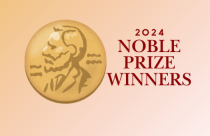Plan S Evolution: cOAlition S unveils bold shift for scholar-led research publishing

After five years of the initiation of Plan S, cOAlition S is out with a bolder and an even more ambitious proposal. It aims to revolutionize research publishing by advocating for all versions of an article, including associated peer-review reports, to be published openly with no author fees. It puts author in the control of publishing decisions into the rather than publishers, aiming for a community-based and scholar-led open-research communication system. The proposal suggests a transformative change, positioning publishers as service providers for processes like copy-editing and typesetting.
Outlining a future that is community-based and scholar led, the new Plan S vision emphasizes community control over scholarly communication. This urges for initiatives where elements like research articles, peer-review reports, editorial decisions, and correspondence are managed and responsive to the scholarly community. While some aspects of this proposal have been previously trialed on a smaller scale, the comprehensive shift it proposes differs substantially from the current scholarly communication norms.
Shift Towards Community Control and Open Peer Review
The latest proposal goes beyond open-access articles, aiming to address problems in the current research-publishing system. It suggests a model where the academic community controls publication, peer review is managed by academics without cost to authors, and peer-review reports are openly published. It allows for different organizations to cover costs for these processes.
The proposal is undergoing a consultation phase to gather feedback from the global research community. Unlike the forceful mandates of Plan S, this proposal is more about encouraging discussion and less about imposing stringent requirements.
The impact and acceptance of this new proposal will depend on reactions from the research community and other funders. Although this is a significant departure from traditional scholarly communication, but its success relies on widespread acceptance and engagement from the broader research community.









